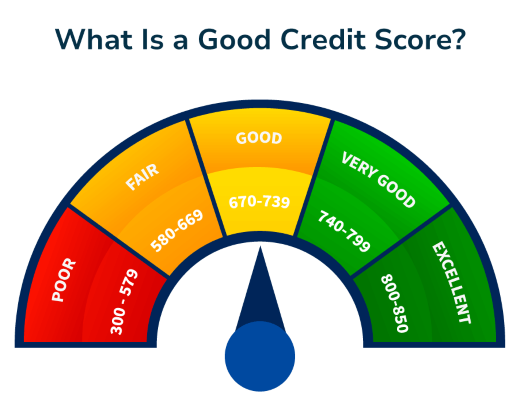How to Build and Maintain a Solid Credit Score
Maintainig a good credit score is very important for your financial health. A good credit score can help you get loans at lower interest rates, better credit card offers, and even better insurance. In this article we will discuss how to maintain a good credit score.

What is a Credit Score?
A credit score is a number that represents your creditworthiness. It is a three-digit number that ranges from 300 to 850. The higher your credit score, the more likely you are to be approved for loans and credit cards. A good credit score can help you get loans at lower interest rates, better credit card offers, and even better insurance.
What is a Good Credit Score?
A good credit score is generally considered to be 700 or higher. A credit score of 700 or higher is considered to be good, while a credit score of 800 or higher is considered to be excellent. A credit score of 600 or lower is considered to be poor. If your credit score is below 700, you may have trouble getting approved for loans or credit cards.

How is a Credit Score Calculated?
Your credit score is calculated based on several factors, including your payment history, the amount of debt you owe, the length of your credit history, the types of credit you have, and the number of new credit accounts you have opened. The most important factor in determining your credit score is your payment history. If you pay your bills on time, your credit score will be higher. If you miss payments or pay late, your credit score will be lower.
Uses of maintaining a good credit score
Maintaining a good credit score is important for your financial health. A good credit score can help you in many ways, including:
- Get loans at lower interest rates
- Better credit card offers
- Better insurance
- Get approved for an apartment or a job
How to Build and Maintain a Good Credit Score
There is no secret formula to building a strong credit score, but here are some tips to help you build and maintain a good credit score:
1. Pay your bills on time
Paying your bills on time is the most important thing you can do to build and maintain a good credit score. If you miss payments or pay late, your credit score will be lower.
Set up automatic payments for your bills so that you never miss a payment. If you can't pay your bill on time, contact your creditor to see if you can work out a payment plan.
2. Only apply for credit when you need it
Every time you apply for credit, a hard inquiry is made on your credit report. Too many hard inquiries can lower your credit score. So only apply for credit when you need it.
3. Keep your credit card balances low
Keeping your credit card balances low can help you maintain a good credit score. Try to keep your credit card balances below 30% of your credit limit.
4. Don't get close to your credit limit
Don't get close to your credit limit. Credit scoring models look at how close you are to being “maxed out,” so try to keep your balances low compared to your total credit limit. If you use too much of your available credit, it can hurt your credit score.
5. Long credit history
The longer your credit history, the better your credit score. If you have a long credit history, it shows that you have been able to manage credit responsibly over time.
6. Check your credit report regularly
Check your credit report regularly to make sure there are no errors or fraudulent activity. You can get a free copy of your credit report from each of the three major credit bureaus once a year.
7. Maintain a good mix of credit
Having a good mix of credit can help you maintain a good credit score. This includes credit cards, installment loans, and mortgages.
8. Don't close old accounts
Closing old accounts can hurt your credit score because it shortens your credit history as it can depict your relation with the credit card company or bank.
Conclusion
To improve and maintain a good credit score, beginners should follow these four important steps: apply for an unsecured or secured credit card based on eligibility criteria, avoid multiple credit card applications at once, become an authorized user of a credit card responsibly, and regularly use your credit card without maxing out the limit.
Building a good credit score cannot be done in a night, this requires patience and time. By following the above mentioned steps, you can build and maintain a good credit score.

Your comments